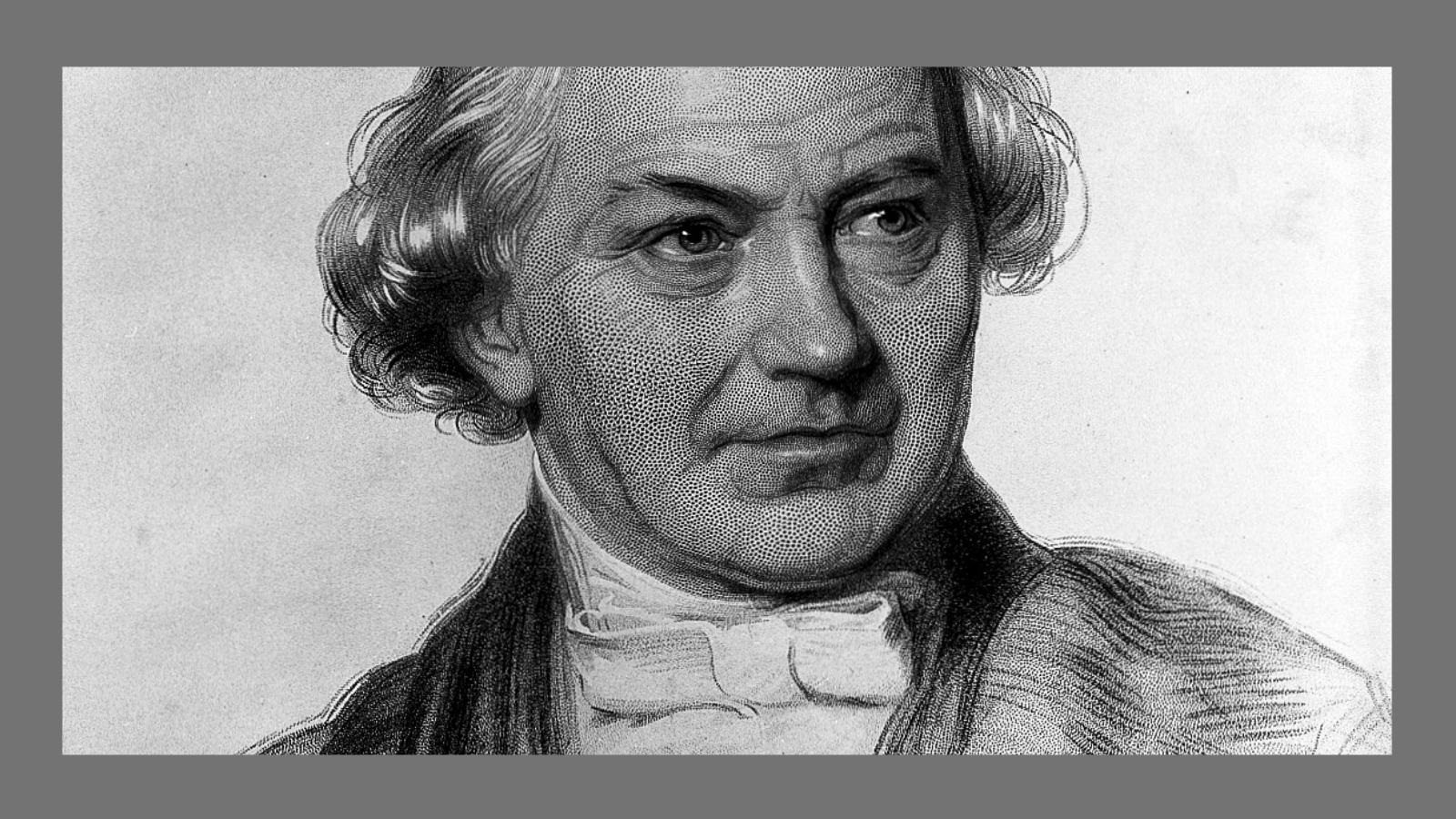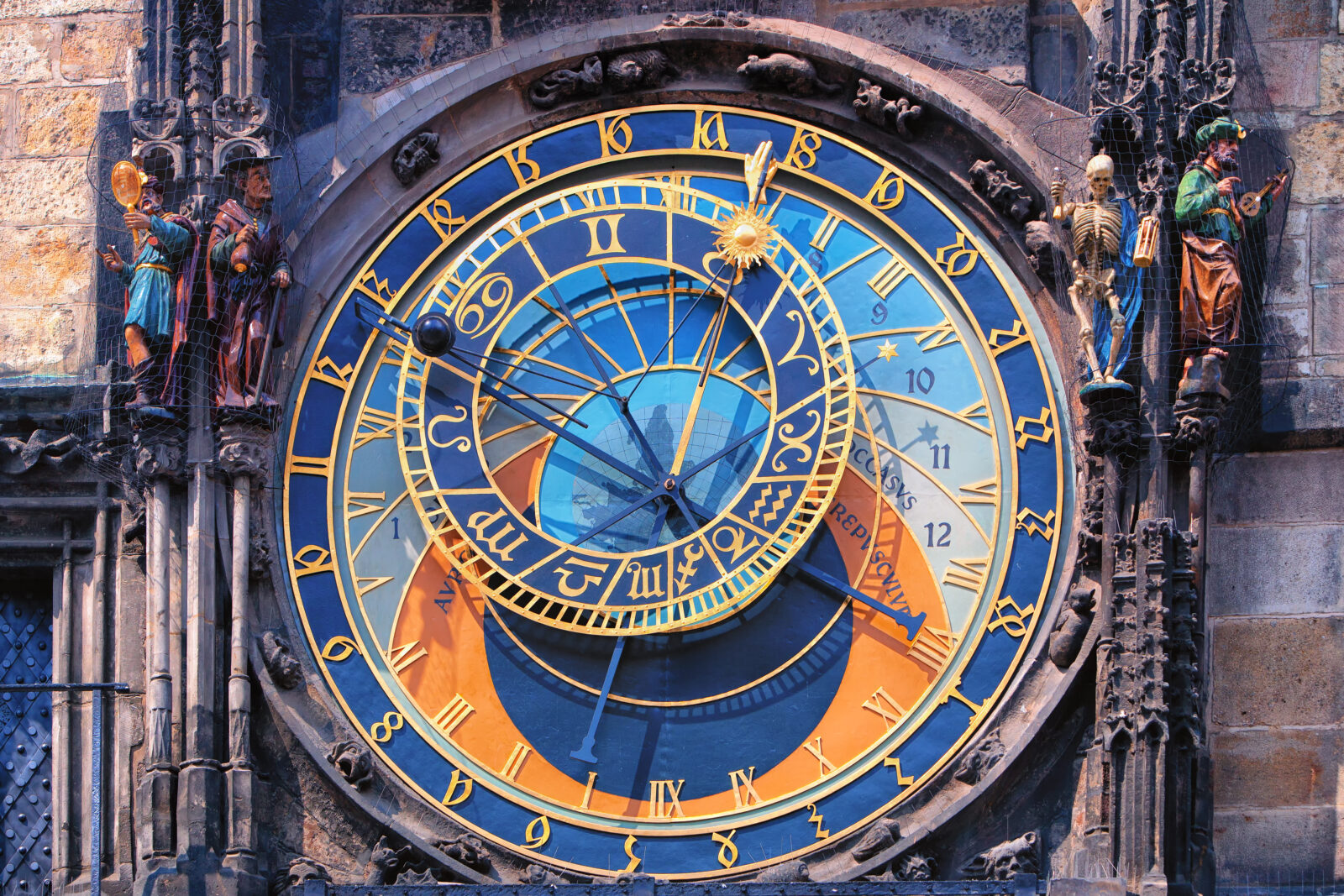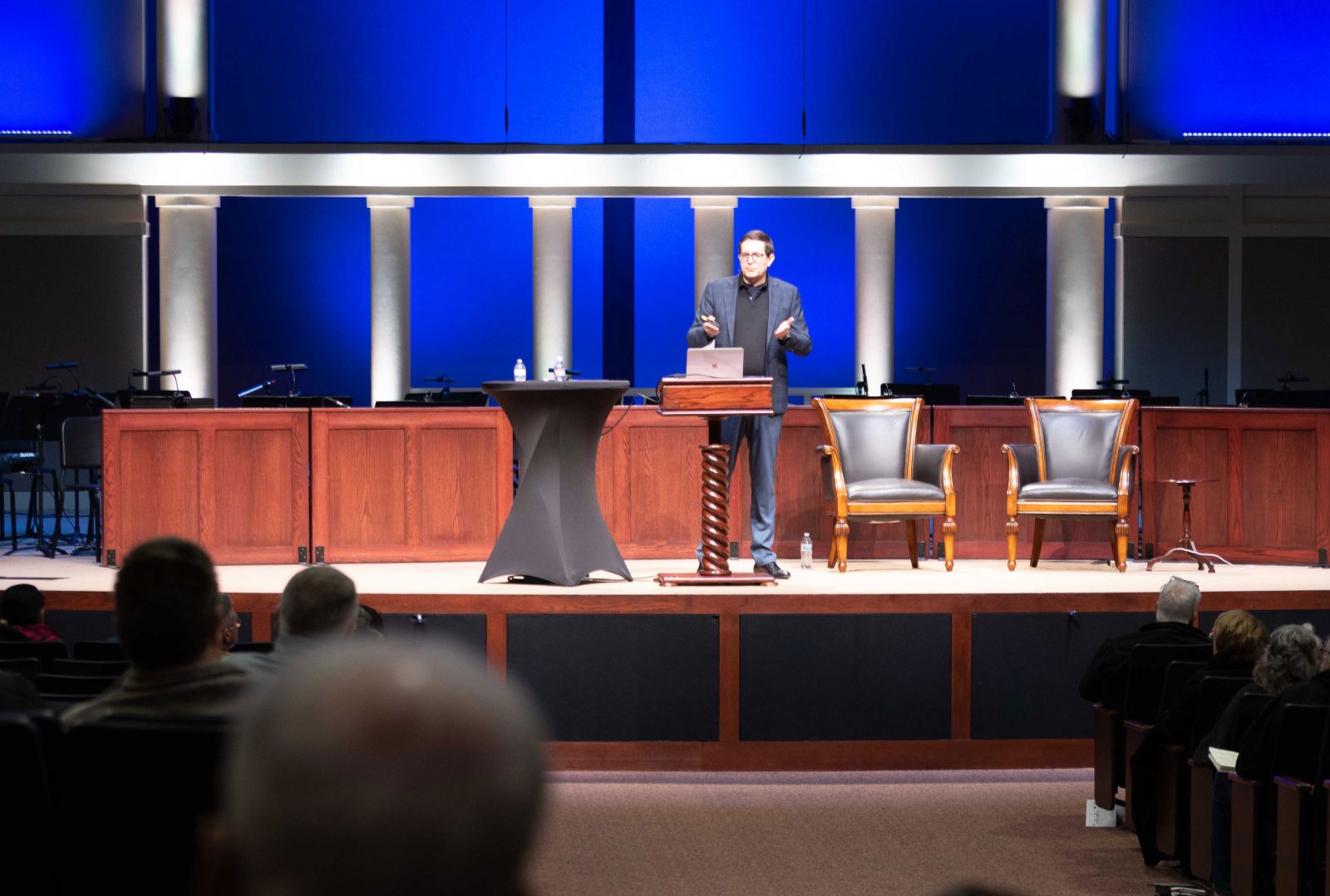


When Natural and Super-Natural Explanations Work Hand in Hand

The Return of Natural Theology

Brian Miller: The Surprising Relevance of Engineering in Biology
Today’s ID the Future brings listeners physicist and engineer Brian Miller’s recent lecture at the Dallas Conference on Science and Faith, “The Surprising Relevance of Engineering in Biology.” Miller rebuts several popular arguments for evolution based on claims of poor design in living systems, everything from the “backward wiring” of the vertebrate eye to whales, wrists, ankles, and “junk DNA.” But the main emphasis of this discussion is the exciting sea change in biology in which numerous breakthroughs are occurring by scientists who are treating living systems and subsystems as if they are optimally engineered systems. Some in this movement reject intelligent design for ideological reasons. Others embrace it. But all systems biologists treat these systems as if they are masterfully engineered systems, and that perspective is rapidly accelerating progress in experimental biology. At the forefront of this work is the Conference on Engineering in Living Systems (CELS). Miller provides an exciting sneak peek at some of the cutting edge research from members of this group.

Physicist Brian Miller Answers the Big Bang Evaders
On this ID the Future, physicist Brian Miller looks at various attempts to evade the mounting evidence that the universe had a beginning, a Big Bang. Miller and host Casey Luskin first review the fascinating history of how the eternal universe model of the nineteenth century gave way to the Big Bang model. Then Miller walks through about a half a dozen attempts to evade a cosmic beginning after the Big Bang model had won the day. These evasions include the steady state model, the idea of an eternal cyclical universe, and the string landscape model. According to this model, our universe exists in a multi-dimensional brane (not “brain”) which exists in a higher dimensional space, and our multi-dimensional brane can collide with other branes, with each collision creating a Big Bang moment, a process said to have been going on for all eternity. Miller then explains why each of these attempts to evade a true cosmic beginning fail, and he says that if matter, energy, and space came into existence at the moment of the Big Bang, then it follows that the cause of this cosmic beginning is something immaterial. And since the cosmic beginning was finely tuned in many astonishing ways, Miller says, the cause of the Big Bang has left the signature of intelligent design. The cause, then, is an intelligent, immaterial being and one, obviously, of unimaginable power. Miller and Luskin then touch on a final attempt to evade these implications, the idea that the universe could have popped into existence from nothing—no God, no anything. But as Miller shows, the proposals along these lines, offered by such physicists as Lawrence Krauss and Stephen Hawking, do not actually start from nothing. There is always a something at the ground state, a something whose origin is left unexplained. The occasion for the conversation is Miller’s essay in the recent Harvest House anthology, The Comprehensive Guide to Science and Faith: Exploring the Ultimate Questions About Life and the Cosmos.

Neil Thomas Takes on Epicurus and the Logical Positivists
Today’s ID the Future concludes a three-part series featuring author Neil Thomas in a free-ranging conversation with radio show host Hank Hanegraaff. The focus is Thomas’s recent book, Taking Leave of Darwin: A Longtime Agnostic Discovers the Case for Design. Here Thomas and Hanegraaff discuss the logical positivists and what Thomas sees as their failure to consistently apply their evidential standards to Darwinism. Thomas also contrasts the cosmic nihilism of Richard Dawkins with the mounting evidence of fine tuning for life, and calls out what Thomas describes as the magical thinking at the heart of Darwinism. Hanegraaff and Thomas also explore how Darwin’s theory of evolution has roots in an ancient philosophical system that was long regarded as resting on such flimsy speculative foundations that it wasn’t taken seriously for long centuries. In Thomas’s opinion, that philosophical system shouldn’t have been taken seriously then, and still shouldn’t be. In the wrap up, Hanegraaff and Thomas provide a model of how two men with differing positions on Christianity can converse and even challenge each other while remaining cordial. Hanegraaff, an Orthodox Christian, urges Thomas, a longtime agnostic rationalist who has recently become open to theism, to take his journey into theism further by considering the historical claims specific to Christianity. Does Thomas bridle? Not all. Listen in to hear how the conversation plays out, and find Thomas’s book, which Hanegraaff highly recommends, here. This three-part series is posted here by permission of Hank Hanegraaff. For more Hank Hanegraaff, check out his podcast, Hank Unplugged.

Jay Richards: Before Carl Sagan Said It, Science Debunked It
On today’s ID the Future, Privileged Planet co-author Jay W. Richards sits down with host Eric Anderson to discuss the gold rush of extrasolar planet discovery and how the Privileged Planet hypothesis has held up since 2004. Richards teases an anniversary edition of The Privileged Planet in the works, and he and Anderson discuss the statement that Carl Sagan is perhaps most famous for. Richards explains how science had already disproven the famous Sagan claim by the time the astronomer first uttered it to millions of viewers in his documentary series Cosmos.

ID Pioneer Michael Behe Tangles with Two Philosophers, Pt. 2
In today’s ID the Future, intelligent design pioneer Michael Behe continues his conversation with philosophers Pat Flynn and Jim Madden. Here in Part 2 of a three-part series, Behe offers an illustration from language and Madden presses him, noting that meaning detection in language is not parts to whole. A lively exchange ensues and then Behe turns the discussion back to his primary focus, detecting design in molecular biological machines by recognizing the purposeful arrangement of parts. From there the conversation turns to everything from epigenetics, systems biology, and autopoiesis to co-option, mousetraps, tie clips, biologist Kenneth Miller, and the philosophers Aristotle and Thomas Aquinas. For Behe’s newest book, A Mousetrap for Darwin, go here. This discussion is presented here with permission of philosopher and podcaster Pat Flynn.

Rhetorical Advice for Opponents of Intelligent Design
On this ID the Future author and blogger Tom Gilson offers advice to ID opponents on how to improve their persuasive strategy. Getting ID theory right instead of criticizing a made-up straw man would be a good start, he says. He then offers several additional suggestions, all of which have the incidental effect of highlighting the many suspect rhetorical strategies commonly employed by prominent opponents of ID. Gilson is the author of six books on faith, culture, and philosophy, and has a background in organizational strategy and organizational psychology. He is a blogger, a senior editor at The Stream, and the sound editor of this podcast.

Cornelius Hunter on the Determinedly Determinist
On this ID the Future Cornelius Hunter discusses the controversy over determinism and free will. Joined by host Michael Keas, Dr. Hunter, a specialist in biophysics and computational biology, takes listeners all the way back to Aristotle, then to Newton, then to Pierre-Simon Laplace, who theorized that a sufficient computation could determine the future based on just the universe’s initial conditions and the laws of nature. Laplace was a physical determinist, in other words, one who holds that the laws of nature determine everything. That includes human choices, which determinists today, such as German theoretical physicist Sabine Hossenfelder, take to be merely an illusory experience. But it’s “an irrational rejection of evidence” on their part, Hunter argues; evidenced by how blithely they sweep it aside.